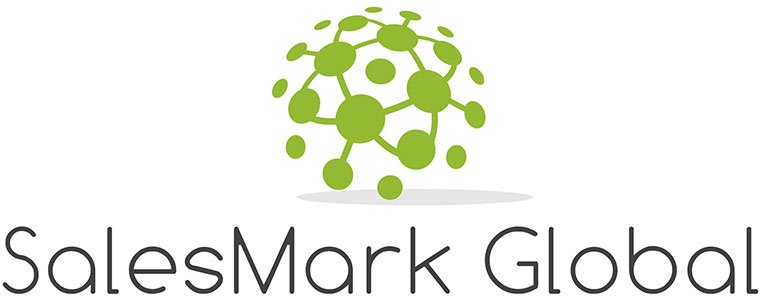Discover 10 key indicators that show it’s time to adopt AI automation for your sales team to boost performance, streamline workflows, and close deals faster.
In the modern B2B world, where everything moves quickly, sales teams are expected to achieve quicker results, more intelligent insights, and enhance customer experiences. Manual data entry and repetitive processes that traditional sales processes can bog down can restrict your team and decrease accuracy and efficiency. That is where sales AI automation comes in. It allows teams to devote more time to sales and less time to paperwork. It can be lead scoring, predictive forecasting, personalized outreach, or all of the above – AI-driven tools can completely transform your approach to sales. But how can you tell when your team is ready? So, without further ado, here are 10 signs that you should consider AI automation of your sales process.
Table of Contents
1. How AI Automation Can Improve Your Sales Team’s Performance
2. 10 Key Indicators Your Sales Team Needs AI Automation
2.1. Your Sales Reps Spend More Time on Admin Than Selling
2.2. Leads Are Falling Through the Cracks
2.3. Forecasting Is Inaccurate or Inconsistent
2.4. You’re Scaling and Need Repeatable Processes
2.5. Your Sales Cycle Is Too Long
2.6. Lack of Personalization in Outreach
2.7. Sales and Marketing Are Misaligned
2.8. You’re Drowning in Sales Data
2.9. High Rep Turnover and Inconsistent Performance
2.10. Your Competitors Are Already Using AI
3. How AI Automation Can Improve Your Sales Team’s Performance?
4. When to Implement AI Automation in Sales Strategy?
Conclusion
1. How AI Automation Can Improve Your Sales Team’s Performance
AI automation empowers sales teams by streamlining repetitive tasks and enabling data-driven decision-making. From automating lead prioritization to optimizing email sequences, AI increases productivity and accuracy. Sales reps gain back valuable time to focus on human-to-human interactions, improving relationship-building and closing rates. Tools leveraging AI can also analyze behavioral data to personalize outreach, predict churn, and forecast deals with precision. As a result, AI in sales strategy enhances overall performance, accelerates pipeline growth, and aligns efforts across marketing and sales. Embracing AI sales process automation isn’t just a trend—it’s a transformative strategy for staying competitive.
2. 10 Key Indicators Your Sales Team Needs AI Automation
A complex and competitive sales environment may slow down your sales team, and manual processes are a primary culprit. It is important to know when it is the right time to embrace AI automation to be ahead of the game. These 10 indicators are the keys to evaluating the fact whether your sales process deserves an upgrade that is driven by technology:
2.1. Your Sales Reps Spend More Time on Admin Than Selling
When your reps spend hours entering data into CRM systems, logging emails, and building reports, it is a red flag. Admin takes precious selling time. AI automation will be able to enter the data, update the records, and set follow-ups. Artificial intelligence-powered tools, such as Salesforce Einstein or HubSpot AI assistants, are able to process the information in real-time so that your sales team can focus on what they do best—establishing relationships and closing deals. When the selling time has been dominated by administration overheads, then it is time to introduce AI into the process and allow automation to do the work.
2.2. Leads Are Falling Through the Cracks
Leads that are managed manually are most of the time lost or forgotten. When your sales team is overloaded, and leads are not followed up on as quickly as possible, AI will do the trick. AI can help to prioritize leads according to engagement, demographics, or behavioral data. No opportunity is missed with predictive lead scoring and smart follow-ups. Automated workflow also makes sure that the leads are triggered to email campaigns or chatbots when your reps are occupied. In case you are missing leads and this is causing a drag on your conversion rate, then you need to automate your sales process.
2.3. Forecasting Is Inaccurate or Inconsistent
One of the giveaways of an out-of-date process is inconsistent revenue forecasting. When your pipeline reports are full of guesswork and subjective inputs, then AI automation can provide clarity. AI applications use past data, behaviors, and trends to come up with a very precise prediction of the markets. With ever-increasing knowledge about previous transactions and ongoing operations, AI may forecast revenue, highlight possible deal stoppers, and warn managers about potential dangers. When gut feel is relied on, as opposed to data, to make decisions, the AI in your sales strategy can represent the analytical backbone that you require.
2.4. You’re Scaling and Need Repeatable Processes
The bigger your business is, the more problematic the inconsistencies in sales execution. Manual processes can not scale: If you are hiring new reps or expanding into new markets, manual processes will not allow you to grow. AI automation will allow you to template the outreach, follow-ups, and reporting. It also makes sure that all the reps are executed according to best practices without having to have a supervisor all the time. Sales enablement tools such as Outreach or Gong are AI-based and prompt the dialogue, highlight areas of improvement, and ensure consistency throughout the teams. Automation guarantees efficiency and repeatability in case scalability is your priority.
2.5. Your Sales Cycle Is Too Long
An elongated sales cycle may translate into unmet quotas and stakeholders getting frustrated. By prioritizing the best leads, recommending the next actions, and automating the messages, AI helps to reduce the sales cycle. Chatbots are able to pre-qualify leads, as well as provide answers to common questions immediately. AI is also able to reveal the optimal moment to make contact with the prospects, as well as propose appropriate content. AI in sales strategy saves days or even whole weeks on the sales process by accelerating touchpoints and eliminating friction. Are deals taking too long to close? Then automation is the answer to quicker closure.
2.6. Lack of Personalization in Outreach
Buyers today are used to personalized messages. When your sales reps are blasting generic outreach or failing to personalize where possible, AI can assist. Using AI, it is possible to create personalized emails depending on the behavior, role, and industry of the prospect. They can monitor the engagement, as well as suggest personalized content at any given stage. When combined with CRM and marketing data, AI makes every message resonate. When your outreach is impersonal and the engagement is poor, AI-powered personalization can significantly increase the response and conversion rates.
2.7. Sales and Marketing Are Misaligned
When sales and marketing teams are working in silos, it is easy to lose valuable data and end up with poor leads. AI automation fills the gap by synchronizing customer data and aligning lead scoring rules, and automating hand-offs. AI-powered solutions offer a common customer journey picture, allowing both teams to operate on insights in real-time. Whether you find yourself disagreeing on the quality of leads or lack a cohesive approach to both functions, AI is here to bring both attributes together and make it data-driven and collaborative.
2.8. You’re Drowning in Sales Data
Currently, sales teams are overwhelmed with data, whether it is CRM entries or call recordings, or email logs. In case your team cannot gain insights using this data, AI automation is essential. AI can sift through terabytes of structured and unstructured data to find patterns, counterarguments, and winning behaviours. Conversation intelligence tools, such as Gong or Chorus, help to derive meaningful insights from a call. When you have a data-rich team but an insight-poor AI will change the way you interpret and take actions on the information.
2.9. High Rep Turnover and Inconsistent Performance
When turnover is high and the performance of the reps is up and down, there is usually an indication of a lack of support or ineffective procedures. AI-driven sales enablement platforms are able to coach reps in real-time, track deal health, and help to drive consistency in rep performance. They also minimise the learning curve for new employees through providing guided selling routes and automated prompts. When training and performance are all over the place, automation can provide a baseline and assist reps in a better way.
2.10. Your Competitors Are Already Using AI
Using AI and your competitors are not, then you risk falling behind. With AI-powered sales approaches, brands provide customers with quicker turnaround times and more precise information, as well as offering them a better experience. Firms exploiting AI to support sales forces are reporting huge gains in productivity and win rates. When you find yourself losing out to the competition, AI could be your advantage. In order to be at the same level of competitiveness, or ahead of the curve, AI automation investment is no longer a choice.
3. How AI Automation Can Improve Your Sales Team’s Performance?
The nature of AI automation is that it changes sales performance by automating manual, repeatable actions to enable intelligent systems to work 24/7. AI enhances productivity and performance from lead scoring through data entry, customized outreach, and post-call analytics. It also offers predictive features that assist the reps to focus on the leads that are likely to convert and gain a better insight into customer intent. Through machine learning, the AI systems are improving continuously, providing real-time coaching and content recommendations based on every sales interaction. When it comes to managers, AI provides more accurate forecasting, performance tracking, and onboarding. This makes teams more dedicated, responsive, and data-oriented, the main characteristics of winning in a steeply competitive market.
4. When to Implement AI Automation in Sales Strategy?
The right timing plays an important role in the AI automation of your sales strategy. Although there is a competitive advantage in being an early adopter, moving in without a proper foundation may result in inefficiencies and failure. The best moment to implement AI is when your sales data is centralized, clean, and always kept updated. The AI depends on the data to provide insights and recommendations, and it means that a messy CRM or missing attributes on customer profiles can undermine its performance. It is also an indication to introduce automation during growth and scaling stages, e.g., when expanding sales teams or moving into new markets, because AI can provide consistency and scalability in these new markets or new hires.
Functional bottlenecks such as poor forecasting, slow lead response time, or time-consuming sales cycles are good indicators that your sales process needs automation. Nevertheless, the implementation of AI cannot be a simple strategy or a move by leaders since it needs cross-functional cooperation and the acceptance of leaders to ensure that sales and IT departments work hand in hand. Start with a low-risk pilot, like automated lead scoring or follow-up emails, and evaluate the results prior to a larger implementation. It is also necessary that AI tools should work well within your current tech stack, whether that be CRM and marketing automation platforms, to prevent siloed systems.
Last but not least, train your team on how to use the AI tools effectively. AI is not a substitute, it is an assistant – it will supply reps with superior insights and recommendations, but not replace them. With the coordination of the time, infrastructure, and preparedness, your organization can utilize AI automation to boost productivity, decision-making, and sales performance.
Conclusion
AI automation is not a buzzword; it is an evolution of sales. Whenever your team is choked with manual work, unreliable performance, and lost opportunities, it is time to introduce AI to the picture. When you can identify with the key indicators mentioned above, then you will make a confident and timely decision to automate. Intelligent automation is the future of sales- the early adopters will dominate the market. Leap, and have AI fuel your development.
Visit Our SalesMarkBlog Section to Uncover the Sales Strategies That Ignite Your Sales Journey!





